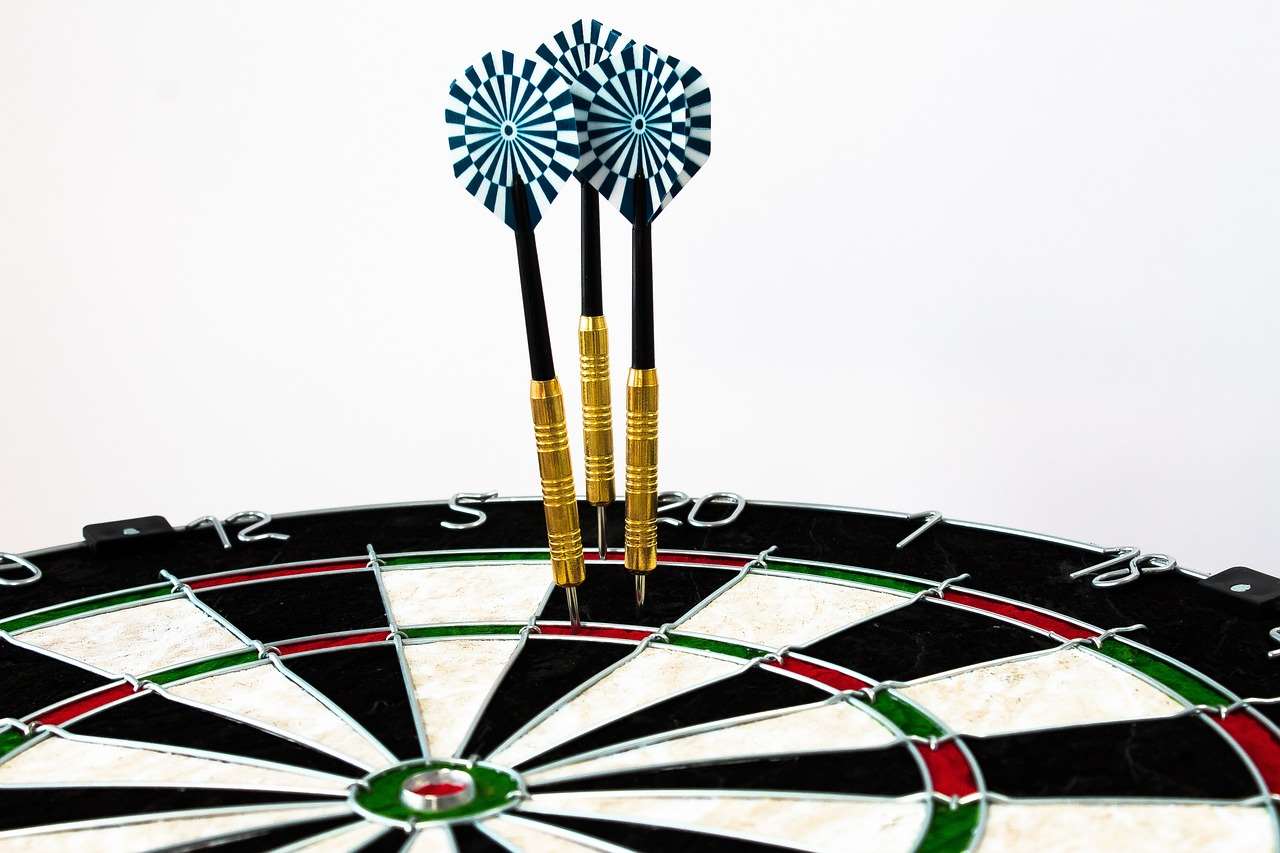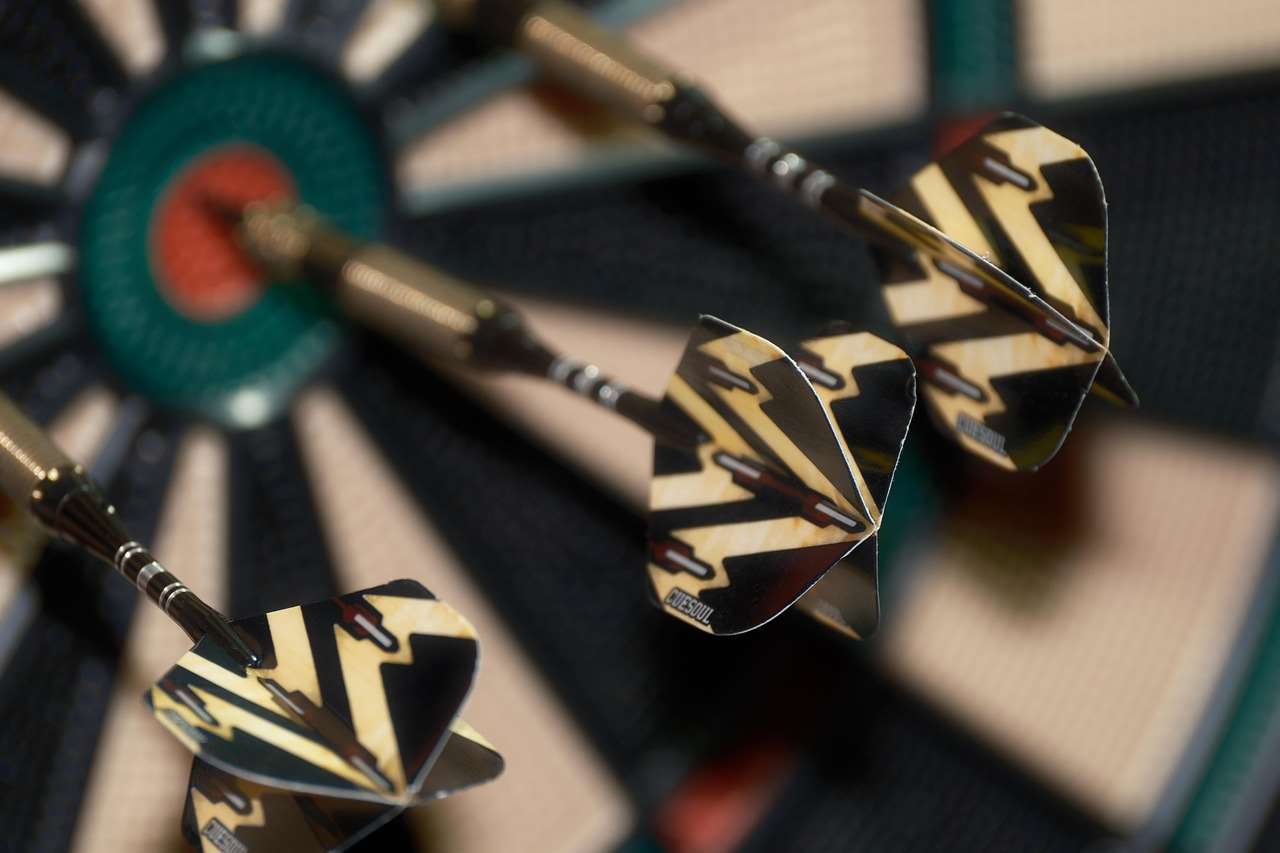Choosing the right darts venue pricing structure options is crucial for profitability and attracting customers; typically, venues opt for per-hour, per-person, or league-based fees, or a combination of these. This article explores various darts venue pricing models, their pros and cons, and provides practical tips for implementing them effectively, including optimizing for different customer types and local market conditions.
⚠️ Still Using Pen & Paper (or a Chalkboard)?! ⚠️
Step into the future! The Dart Counter App handles all the scoring, suggests checkouts, and tracks your stats automatically. It's easier than you think!
Try the Smart Dart Counter App FREE!Ready for an upgrade? Click above!
Understanding Your Target Audience and Costs
Before diving into specific pricing models, it’s essential to understand your target audience and your operational costs. Ask yourself: Who are you trying to attract? Serious league players? Casual groups looking for a fun night out? Understanding your clientele will heavily influence the most appropriate darts venue pricing structure options.
Equally important is calculating your costs. These include:
- Rent or mortgage payments
- Utilities (electricity, water, gas)
- Staff salaries
- Equipment costs (dartboards, darts, scoreboards, etc.)
- Maintenance and repairs
- Insurance
- Marketing expenses
Once you have a clear understanding of your costs and your target audience, you can begin to evaluate different pricing structures. Analyzing your local market is vital too. What are other entertainment venues charging? Are there other darts venues nearby, and what is their pricing like? Competitive analysis will help you position yourself effectively.

Common Darts Venue Pricing Structure Options
Here’s a breakdown of common darts venue pricing structure options, along with their advantages and disadvantages:
1. Per-Hour Rental
This model charges customers a fixed rate for renting a dartboard or playing area for a specific period. It’s simple and easy to understand.
Pros:
- Easy to administer
- Predictable revenue stream
- Appeals to groups
Cons:
- May not be attractive to solo players
- Can be less profitable during slow periods
Consider offering different hourly rates for peak and off-peak hours to maximize revenue. You could also explore offering discounts for longer rental periods.
2. Per-Person Fee
This model charges each person a flat fee to play darts for a set amount of time or unlimited play during a certain period.
Pros:
- Good for walk-in customers
- Can be attractive to solo players
- Easy to track revenue per person
Cons:
- Less predictable revenue compared to hourly rentals
- May not be ideal for large groups
To make this more appealing to groups, consider offering group discounts or packages. It’s also important to closely monitor table turnover to ensure you’re maximizing capacity. Understanding the Business of Darts is essential for setting effective pricing.
3. League Fees
If your venue hosts darts leagues, you’ll need to establish league fees. These fees typically cover the cost of running the league, including prizes, administration, and any special equipment or services provided.
Pros:
- Recurring revenue stream
- Builds a loyal customer base
- Generates additional revenue through food and beverage sales
Cons:
- Requires more administrative effort
- May involve prize payouts
Consider offering different league fee tiers based on the level of competition or the number of players per team. You could also offer discounts to teams that commit to multiple seasons.

4. Membership Programs
A membership program can offer exclusive benefits to regular customers in exchange for a recurring fee (monthly or annual). Benefits might include discounted rates, priority booking, or access to members-only events.
Pros:
- Creates customer loyalty
- Provides a predictable revenue stream
- Encourages repeat visits
Cons:
- Requires careful planning and implementation
- May not be attractive to all customers
To make your membership program appealing, clearly define the benefits and ensure they offer real value to your target audience. Promote the program effectively through your website, social media, and in-venue signage.
5. Package Deals
Package deals combine darts play with other offerings, such as food, drinks, or merchandise. This can be a great way to attract groups and increase revenue per customer.
Pros:
- Increases average spend per customer
- Attracts groups and parties
- Offers a convenient all-in-one solution
Cons:
- Requires careful planning and inventory management
- May be more complex to administer
Examples of package deals could include “Darts & Pizza Night,” “Darts & Drinks Special,” or “Birthday Party Package.” Make sure to price your packages competitively to offer good value to your customers.
6. Pay-Per-Game
Charging a small fee for each game played is another potential **darts venue pricing structure option**, particularly if you have electronic dartboards that automatically track scores and handle payment.
Pros:
- Simple to understand
- Good for casual players who don’t want to commit to a longer rental
Cons:
- May not be as profitable as other models for frequent players
- Requires reliable electronic dartboard systems
This model works best with modern dartboards that can accurately track scores and handle payments automatically.
Factors to Consider When Choosing a Pricing Structure
When deciding on the best darts venue pricing structure options for your venue, consider the following factors:
- Location: What are typical entertainment prices in your area?
- Competition: What are other darts venues (or similar entertainment venues) charging?
- Operating Hours: Can you adjust pricing based on peak and off-peak times?
- Special Events: Will you offer different pricing for tournaments or special events?
- Target Audience: What pricing will appeal most to your ideal customer?
It’s also crucial to track your performance and be prepared to adjust your pricing as needed. Monitor your revenue, occupancy rates, and customer feedback to identify areas for improvement. You could also consider the impact of darts tv rights value on venue popularity and adjust pricing accordingly.
Maximizing Revenue Through Strategic Pricing
Beyond the basic pricing structure, there are several strategies you can use to maximize revenue at your darts venue.
Happy Hour Specials
Offer discounted rates on drinks and darts play during off-peak hours to attract customers and boost sales.
Loyalty Programs
Reward regular customers with discounts, free games, or other perks to encourage repeat business. A structured loyalty program can also provide valuable data on customer preferences and behavior.
Upselling and Cross-Selling
Train your staff to suggest additional items or services to customers, such as appetizers, premium drinks, or merchandise. For example, if a customer rents a dartboard for an hour, your staff could suggest adding a pitcher of beer or a platter of snacks.
Event Hosting
Promote your venue as a destination for birthday parties, corporate events, and other special occasions. Offer customized packages to meet the specific needs of each event.
Online Booking and Promotions
Make it easy for customers to book dartboard rentals or event packages online. Use your website and social media channels to promote special offers and discounts. Online booking systems also streamline the reservation process and reduce administrative overhead.
Technology and Darts Venue Pricing
Technology plays an increasingly important role in managing darts venue pricing structure options and optimizing revenue. Modern dartboard systems can automate scoring, track player statistics, and even handle payments. Point-of-sale (POS) systems can streamline transactions, track inventory, and generate reports on sales data. Reservation systems can help you manage bookings, optimize table turnover, and communicate with customers.
Investing in the right technology can not only improve efficiency but also enhance the customer experience. For example, interactive dartboards can provide a more engaging and entertaining experience, while online booking systems offer convenience and flexibility.

The Importance of Customer Service
No matter which darts venue pricing structure options you choose, excellent customer service is essential for success. Friendly and attentive staff can create a welcoming atmosphere and encourage customers to return. Train your staff to be knowledgeable about darts, provide helpful advice, and resolve any issues quickly and efficiently. Encourage feedback and actively listen to customer suggestions for improving your venue. A positive customer experience can lead to word-of-mouth referrals and increased customer loyalty.
Creating a comfortable and enjoyable atmosphere is also vital. This includes ensuring the venue is clean, well-maintained, and properly ventilated. Providing comfortable seating, good lighting, and a well-stocked bar can also enhance the overall customer experience. Consider offering amenities like free Wi-Fi and charging stations to cater to tech-savvy customers. Understanding how how darts media deals work can also impact the overall experience you offer, even indirectly.
Legal and Regulatory Considerations
Before implementing any pricing structure, it’s important to consider any legal and regulatory requirements. This may include obtaining the necessary licenses and permits, complying with local liquor laws, and adhering to pricing regulations.
Consult with a legal professional to ensure you are in compliance with all applicable laws and regulations. It’s also a good idea to have a clear and concise pricing policy that is displayed prominently in your venue and on your website. Transparency in pricing can help build trust with your customers and avoid misunderstandings.

Adapting to Changing Market Conditions
The entertainment industry is constantly evolving, so it’s important to be prepared to adapt your darts venue pricing structure options to changing market conditions. Monitor trends in customer preferences, technology, and competition, and be willing to experiment with new pricing models and promotions. For example, if you notice that customers are increasingly using mobile payment apps, consider integrating these options into your payment system. Or, if a new competitor opens nearby, you may need to adjust your pricing to remain competitive. Regularly review your pricing strategy and make adjustments as needed to ensure you are maximizing revenue and attracting customers. Keep in mind the intricacies of PDC Sky Sports deal worth, and how it might impact local interest.
Finally, always be prepared to listen to your customers and respond to their feedback. Engaging with your customers on social media, conducting surveys, and soliciting in-person feedback can provide valuable insights into their preferences and expectations. By being responsive to customer needs and adapting to changing market conditions, you can ensure the long-term success of your darts venue.
Conclusion
Choosing the right darts venue pricing structure options requires careful consideration of your target audience, costs, competition, and legal requirements. By exploring different pricing models, implementing strategic pricing strategies, and providing excellent customer service, you can maximize revenue and create a thriving darts venue. Remember to continuously monitor your performance, adapt to changing market conditions, and always prioritize the customer experience. Ultimately, the most successful pricing structure will be one that is both profitable for your business and appealing to your customers. Consider evaluating your strategy quarterly to stay ahead of any changes. Take the next step and analyze your venue’s data to pinpoint the optimal pricing strategy for sustained growth!
Hi, I’m Dieter, and I created Dartcounter (Dartcounterapp.com). My motivation wasn’t being a darts expert – quite the opposite! When I first started playing, I loved the game but found keeping accurate scores and tracking stats difficult and distracting.
I figured I couldn’t be the only one struggling with this. So, I decided to build a solution: an easy-to-use application that everyone, no matter their experience level, could use to manage scoring effortlessly.
My goal for Dartcounter was simple: let the app handle the numbers – the scoring, the averages, the stats, even checkout suggestions – so players could focus purely on their throw and enjoying the game. It began as a way to solve my own beginner’s problem, and I’m thrilled it has grown into a helpful tool for the wider darts community.